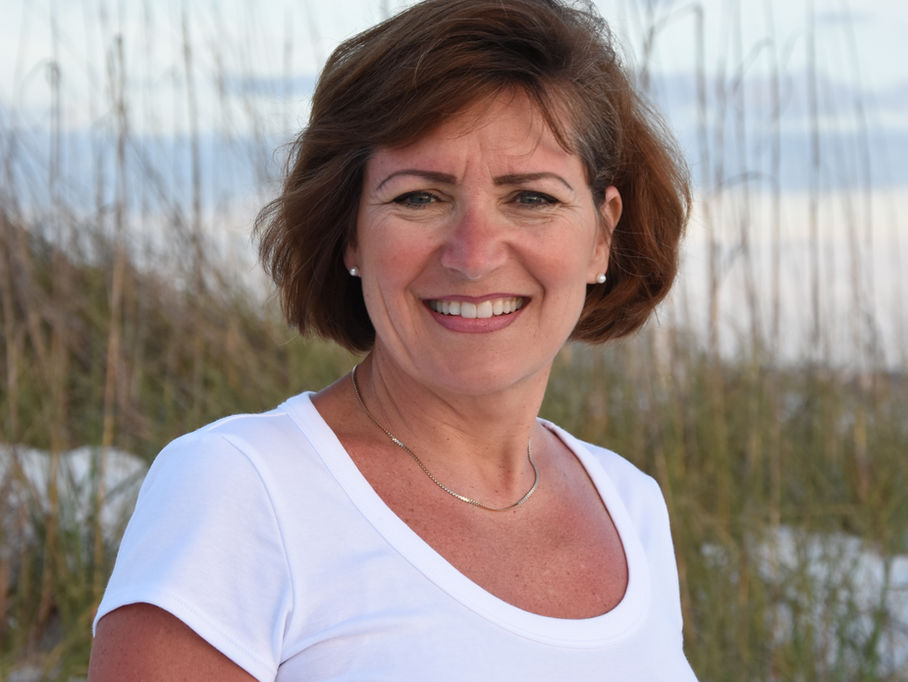Alright, I’m starting to feel like I’m getting the hang of this blog this…but would love to hear from you! Is there someone you would like me to feature? Do you have something you want to share about work-life balance (blend/integration)?
Maryann’s post really got me thinking about the important role leadership plays in creating an environment where women (and all employees for that matter) are given the autonomy to meet both their career and personal life demands. It certainly makes for a happier, more productive person.
When you think about leadership and the role it plays, my conversation with Deborah Legrove is timely. As the President of crawfordconnect, Deborah plays a key role in recruiting leadership for non-profit and charitable organizations across the Country. She recognizes that her role is important in educating her clients and advocating for balance for the prospective leaders her and her team are recruiting.
Beyond her role at crawfordconnect, Deborah is also a mother to (almost) 19-year-old twin boys, a mentor for many women, a busy speaker, an active board member for AFP Foundation for Philanthropy, and an incoming Board Member for Our Place Peel.
There is no doubt her plate is full but she, like so many other women I have chatted with, have a remarkable ability to balance it all (most of the time). It might not be easy, but Deborah shares some great insight, below. Check it out!
1. Briefly tell me about a day in the life of Deborah Legrove, President, crawfordconnect?
Everyday is different—that’s a great environment for me and one I thrive in. Because I always have a new client, I continuously learn about my new client’s need or their organization, this keeps me really engaged. I could be on-site with a client starting a search or presenting candidates, in my office interviewing, or out of office giving presentations.
As a company we conduct a lot of interviews (approximately 300 per year). For the most senior searches, I am usually involved.
I also speak at conferences as well and to smaller groups. In fact, just last month I spoke in Guelph at the Executive Director Peer Group on Building the Best Non-Profit Board.
2. Your children are older now, but do you recall a time in your life when you struggled most with this whole work-life balance? And do you think this balance is truly possible?
My husband and I have twin boys who will be 19 in June. I absolutely recall the rush and panic every morning to get them out of bed, fed, dropped off at daycare or school, or later at the bus stop, and then rushing to work to (hopefully) arrive by 9 a.m. And then when the end of the workday hit, I would repeat the whole exercise again in reverse. If I didn’t leave exactly at 5 p.m. to get to the after-school program by 6 p.m., I was charged extra (I was always the first on the Senior Management Team to leave and I felt guilty about that too). That of course, doesn’t include evening homework or extracurricular activities. It was exhausting! I wasn’t sure I was at my best as a mom or as a non-profit professional.
Everything was rushed. My kids will tell you even today the rushed sense they felt during my 5 years in that role. They’d tell me they liked me best when I was wearing jeans – that was the signal I was calmer and in Mom mode.
When I got off that treadmill and bought crawfordconnect, I was finally in charge of my time. The boys turned 10 that year and they frequently remind me of the times we walked to school in the mornings and the games we played testing them on their multiplication tables. We’d walk through our local forest enroute to their school. It was such a calming start to the day. I’m so thankful for that time with them.
Even today though, work-life balance is a choice. Our boys are older now and run their own lives, but I still must make a determined choice on when to work and when not to, when to set aside time for family, for my husband, and for myself.
3. You shared a story that really resonated with me when we chatted, which was about how the needs of your children don’t go away when they get older, they just change. You noted that once your boys were in grade school it was very important for you to be home and available to them when they got home from school. How did you do this?
When our boys were 4, I made a conscious decision to take, what I thought, was a lateral move away from a role as a fundraising consultant where national travel was a key part of my job. I moved to a more predictable role and schedule with a national charity, which, was fairly demanding only in a different way. I anticipated that, as the boys grew, their needs would change, and their teenage years would be an unknown, so I wanted to be in a position where I was in control of my schedule. That opportunity appeared in 2010 when I purchased crawfordconnect. I was finally in charge of my time.
Flexibility was especially important when my husband and I learned that one of our boys was being seriously psychologically bullied. I was able to arrange my schedule so that I was home when he walked through the door every afternoon. I moved my office to our living room so that I could tell the kind of day he had by immediately looking at his face when he walked in the door. I had the flexibility to put him first when he most needed it.
4. Having some perspective now, and building a successful career while raising your children, what advice can you offer to those women just starting to build their career and their families?
Consider a reduced work-week schedule (90% – 80%) which helps us working moms to look after ourselves too. I did this a few times, when I returned to work after maternity leave, I worked 3 days per week and gradually returned to full-time over several months.
I built my career and then started a family – that’s not for everyone but it gave me credibility in the workplace and by the time I started a family I knew what I wanted. I see that in today’s “candidate market”, non-profits are most likely to allow more flexibility to retain top talent. If you’ve demonstrated your potential and value, your employer will be more willing to support you.
Have a back-up plan. When our boys went into daycare, our old Nanny remained a good support to us. So, whenever one of the boys was sick, I had her to rely on. Our extended families didn’t live close, so she was key to our planning.
5. As a recruiter, do you see many of your clients focusing on recruiting strong women in leadership roles? And what do you think can be done to encourage more women to take on leadership-level roles in our sector?
Recruiting women in our sector is inevitable because 75% of non-profit professionals are typically women. This profession draws them. However, I still see many organizations stuck in the old “9 – 5 day” and the mentality of, “if you’re not in the office, you must not be working”. I’m sure there are exceptions, but really nothing could be further from the truth. Women want more responsibility and want to grow in their careers. Most are being held back.
To encourage women to take on more leadership roles, my advice to employers is to:
- Give female emerging leaders the space to control their work life. Except for a couple of exceptions, I was fortunate enough to have this control and really valued it when I did. We need to get away from demanding that women “ask” to take their child to the doctor.
- Lead by example. Female leaders need to take a lunch and leave at a reasonable time to show other women they don’t have to work unreasonable hours.
- Employers: be creative and set the environment that is women friendly. This means offering flexibility not just a “work from home policy” but a reduced work week policy especially for women with younger children or for those caring for an elderly parent. Or, build more personal days into your policy to allow for this. If you don’t offer this, they’ll look for another employer who will or leave your organization prematurely.
- Encourage mentors/sponsors. Most women want to advance in their careers – team them up with a mentor or sponsor (in or outside of your organization) who can be a sounding board.
6. In your opinion, what are the top 3 things our sector needs to do to help empower women as leaders?
- Encourage emerging female talent to build an internal and external network (including a network beyond our sector). Strong networks are essential when one has a significant challenge to work through.
- Give women more autonomy and responsibility and see how far they will go.
- Invite the emerging talent into leadership meetings so that they can learn, listen and contribute.
7. What is on your current reading list?
- Joan Garry’s Guide to Nonprofit Leadership – a must have for leaders and boards.
- Harvard Business Review on a monthly basis – I’m always looking at the corporate sector for new ideas.
- Penelope Burke – any and all of her books.
- Melinda Gates new book – The Moment of Lift: How Empowering Women Changes the World
8. And lastly, when you do manage to find a few moments for yourself, what is your go to self-care activity?
My husband is better at self-care/work-life balance than I am. I’m so grateful every time he says, let’s go for a hike. Surrounding myself with green and calming environment really helps.
I’ve just taken up meditating in the mornings. Doesn’t take long but is having a positive impact.
This year I promised myself I would travel to a place I’ve never been to before. A girlfriend and I are going to Portugal in June. I’m looking forward to this adventure.
I love that Deborah is so clear about how leaders need to step up to help us all find our balance. The idea of giving emerging leaders more autonomy and opportunities really resonates with me, it’s the only way we are going to grow and shift our sector in a more balanced approach.
Want to chat with Deborah more? Feel free to reach out on e-mail, she would be happy to share further insights on this topic.
Can’t wait to keep chatting with leaders in our sector and sharing their stories with you! (Although, I will say my reading list is getting very long from all these book recommendations). Stay tuned, I have some great interviews in store for the summer.



